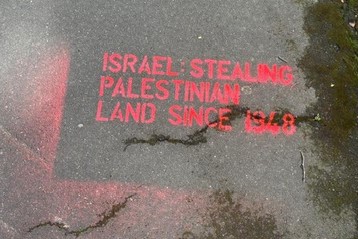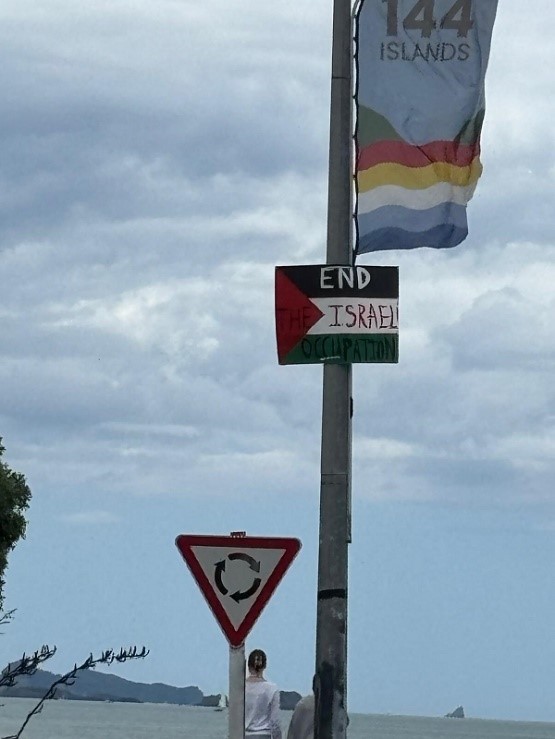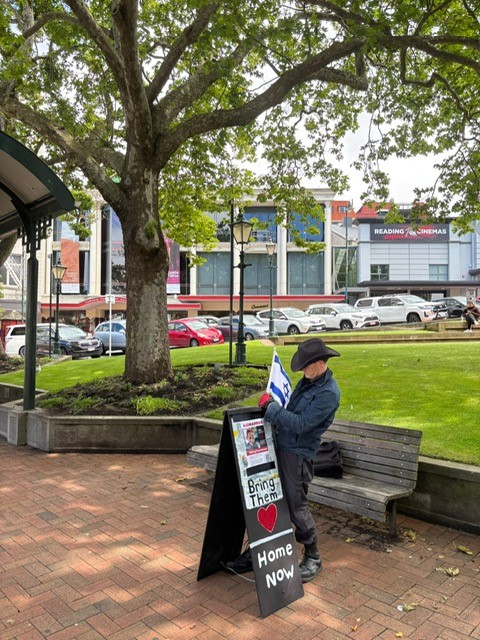On the first day of term, after each summer break, it was inevitable that our school year would begin with the task of writing an essay called “What I Did on my Summer Holiday”. Our English masters would be assessing comprehension, searching for a cohesive narrative, and marking on the ability to articulate emotion and influence through expressive writing.
Whilst a predictable and tedious task, the exercise provided an opportunity for reflection, and to take forward perspective into the new calendar year.
This summer I returned to my native New Zealand for the first time in over a decade.
The New Zealand where I was privileged to be born and raised, and to contribute to for several decades was a place of unparalleled beauty, fairmindedness, tolerance, intellectual honesty, and opportunity.
I was shocked to find that whilst the unparalleled beauty still remains untarnished, the rest of my nostalgic recollections have been all but shattered. Across six different cities, I witnessed anti-Semitism scrawled across lampposts, billboards, fences, pavements, and virtually any canvas that could be repurposed for anti-Israel hate.


The confronting reality was not just the level of vitriol (allegations of genocide, baby killing etc), but the sheer volume of the content. It is prolific, and obviously tolerated (if not encouraged) by municipal and public agencies.
Whilst not unique to New Zealand, the normalised protest culture has been accepted by so many passive people who do not know anything different. Yet in this country, colloquially referred to by us kiwis as “Godzown”, there are very few Zionist supporters to counter the hatred, to stand up and counter the big lie. Towns that barely have enough Jews to make up a minyan are scrawled with “Free Palestine” and similar innuendo that calls for the boycott and eradication of the world’s only Jewish State. The shrill is sounded by migrants, students and political activists, and in many places it festers unopposed. General tolerance of the defacement appears to be driven by a combination of lack of historical education and a demographic shift.
Dunedin seems to be the worst.
One day I am sitting in the Octogen, reading the local newspaper that reports Israel has raided the Kamal Adwan Hospital and detained medical staff. The article quotes Hamas accusing Israel of lies. Context is everything. Simultaneously I receive the daily news summary from Israel on my phone. It notes that Hamas had reestablished its regional command centre on the hospital site (war crime, anybody?) and amongst the 240 terrorists that were apprehended were some who had participated in the October 7 massacre. The Israel report also notes that prior to the IDF action, some 350 patients and medical personnel were successfully evacuated to another hospital, while Kamal Adwan was provided with the necessary supplies to continue operating as a medical care centre. The omission of this information completely inverts the narrative. It leads the readers of the newspaper to conclude that Israel is an aggressor, devoid of its pursuit to eradicate terrorism.
Suddenly, a lone vigil. As I stare at the anti-Israel graffiti in front of me, a man walks towards me with a placard calling to Free the Hostages. At that moment his presence and Israel flag restores my faith in humanity.

As I move through New Zealand and catch up with the best of friends, they can only affirm that the security situation for Jewish New Zealanders is dire, and that the resources required to combat anti-Semitism are far from sufficient. Amongst them are the champions, people who stand up to the hatred, boldly confront the media, and do all they can to tell the truth.
I try to avoid comparing the tone of rhetoric in the streets to that of pre-Holocaust Europe, however, cannot dismiss the sentiment. I imagine the feeling of walking the streets of Germany in the 1930’s, surrounded by Swastikas and slogans that dehumanise Jews. In front of me I see red painted triangles, calls for BDS, and the mainstreaming of an idea that Israel is perpetrating a genocide. Is this what it was like for my grandparents generation before things became so very much worse? Who was it who said that the only thing necessary for evil to triumph in the world is when good people do nothing?
Once again I am seated. In Auckland, the calls to protest and the usurping of Christmas to invoke hatred of Israel are no less confronting. Maybe the entire population is affected? I watch those normal, presumably intelligent citizens who walk straight past the racially inciting propaganda and they don’t even flinch. How is it that they passively stroll by without attempting to remove or even report the hate speech? Is this ignorance, or the slide of societal morality, or has the latter already taking root from the former?
New Zealand, I’m sorry, but your moral compass has magnetically drifted far from its true polar Middle East focal point. That you allow your streets to be littered with hatred of Israel and do nothing other than to hide behind the mantle of “free speech” is to cross a line of acceptable public discourse. Sure, you can find the same in Australia, but not to this scale. Back in Perth if I see anti-Israel graffiti in my neighbourhood and report it to my local Council it is usually gone within hours. If there is open support for terrorism on the streets of my City it is likely to be on the front page of the newspaper, alongside calls for Government action.
To the good people of Aotearoa, I’m not sure where this leads, but this is on you. I’ve heard about the antisemitic hate-mail sent to Jewish institutions with cockroaches and Palestinian flags scrawled with the text “Judenrein”. I’ve read the police produced guidance on “detecting and responding to hostile reconnaissance.” I’ve also heard the call out for the NZ Government to fight back.
My eldest child was born a fifth generation Jewish New Zealander on one side of the family and a fourth generation Jewish New Zealander on the other. Identifying as New Zealand born Jews and as a product of the New Zealand Jewish community has been a badge of honour for my family. I remain flushed with pride and admiration for how the New Zealand Jewish community has always found a way to sustain and regenerate itself. There is optimism that as long as there are Jewish people in New Zealand that community connections and infrastructure will be maintained. This I also saw.
My observation is that New Zealand Jewish identity was very insular in my formative years (a consequence of the post-Holocaust generation), but for a while expanded to be more publicly and proudly prominent. Whilst still strong, it has retracted back to its somewhat hidden and normative state of necessarily removing elements of public visibility. Jewish community security concerns, underpinned by fear and intimidation are very much the driver of this broader cultural abyss. It is a textbook example of what is occurring in small Diaspora Jewish communities the world over.
As wandering Jews we have always moved on. With great regret, I have to conclude that the proliferation of anti-Semitism in the form of hatred of Israel has changed New Zealand for the worse. I am no longer able to bear witness to the objective truth and support of Jewish national self-determination within the ethos of my birthplace.
It is said in the Talmud that nine of the ten measures of the world’s beauty are in Jerusalem. The Talmud may have forgotten to mention that the other measure of the world’s beauty can be found in New Zealand. That outward beauty remains, as pristine as ever. A nation however, will prosper and build its values on its foundations, not its scenery. In New Zealand’s case these are western democratic freedoms and Judeo-Christian ethics. I appeal to the good people of New Zealand to arrest the glacial slide away from the manaaki (warmth and respect for others), pono (integrity and honesty) and aroha (love, affection and empathy) to which it has always enshrined and aspired.

2 thoughts on “What I did on my Summer Holiday”
Andrew thank you for an insightful article. I hope that with Trump’s gentle pressure the NZ Gvt will stop slouching and return to its once honest democratic Base.
Thank you for your well- written and very worrying article
It seems that NZ is no longer the Garden of Eden found and admired by my parents who fled there from Europe in 1939
Is there no public outcry? No action by the government? Sad indeed